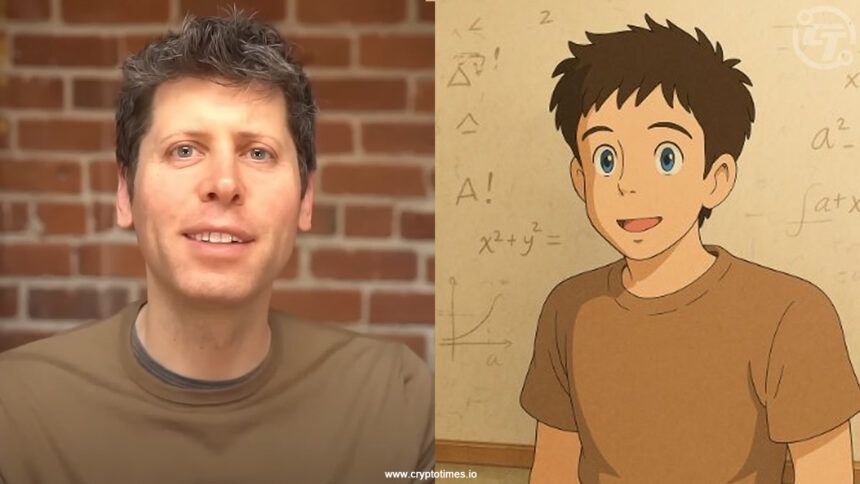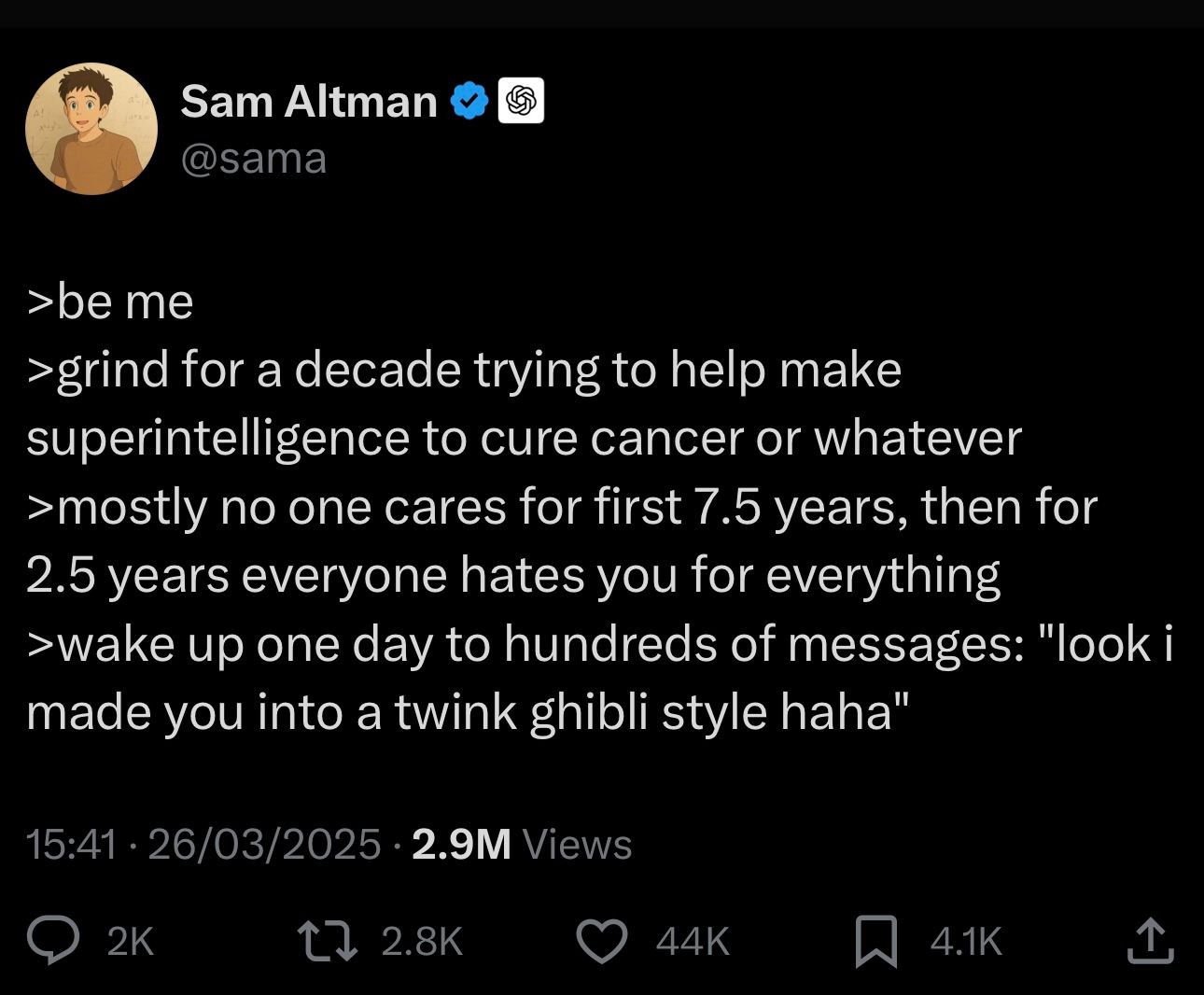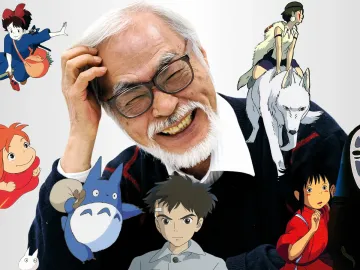Studio Ghibli is the beloved Japanese animation studio which this summer is celebrating 40 years of film making. Famous for its meticulous hand-drawn animation style, which contributes to the unique aesthetic and emotional depth of their films. Some of its biggest films include My Neighbour Tortoro, Spirited Away, The Boy and the Heron, Howl’s Moving Castle and Princess Mononoke. Four of the studio’s films feature in the top 10 grossing Japanese films of all time, and seven of them have been nominated for animated film Oscars, with both Spirited Away and The Boy and the Heron winning.
There is a Studio Ghibli theme park in Japan, Ghibli Park, concert tours of the films’ music and in 2024 it was the first ever film production company to receive an honorary Palme d'Or. To say the films and their unique style are beloved the world over would be an understatement.
The reason the studio is in the news this week though is because OpenAI has launched its most recent image generator that allows users to create Studio Ghibli-style visuals.
The studio is certainly no fan of AI. When shown an AI animation demo in 2016, Hayao Miyazaki, the co-founder of Studio Ghibli said, “I am utterly disgusted. If you really want to make creepy stuff you can go ahead and do it. I would never wish to incorporate this technology into my work at all.” He also said, “I strongly feel that this is an insult to life itself.”
Launched on Tuesday and being hailed as its “most advanced image generator yet” OpenAI users have found it is very good at replicating the anime style of Studio Ghibli, the lush greenery, soft lighting, and expressive characters. Since then users have been flooding the internet with Ghibli-fied versions of themselves, famous film scenes and, of course, memes.
Sam Altman, CEO of OpenAI, commented on the viral trend on X on Wednesday — indicating he has himself been Studio Ghibli-fied.

Altman wrote:

Whilst also changing his profile image to a Ghibli-fied version of himself, it would seem Altman is actively encouraging users to create Ghibli style imagery - which many would argue is a direct copyright infringement. A bold move by a company CEO.
Studio Ghibli has yet to comment on this week’s events but they certainly feed into the wider arguments going on around the use of AI in the creative industries, with creatives voicing concerns about efforts by OpenAI and other artificial-intelligence companies to “weaken or eliminate” protections on copyrighted works for training AI systems.
Earlier this month a federal appeals court in Washington, D.C. affirmed that a work of art generated by artificial intelligence without human input cannot be copyrighted under U.S. law. This upholds the decision in 2023 that said human authorship is a "bedrock requirement of copyright" based on "centuries of settled understanding." So although fully AI generated work cannot be copyrighted there is still ongoing debate, and court cases, on how much protection human artists should have when AI models ‘learn’ from their art to produce new imagery.
There is undoubtedly a place for AI in the creative industries however it should not be used as a tool for simply replicating the styles and aesthetics of studios that have been 40 years in the making.
As AI models make it easier than ever to re-create the styles of copyrighted works — simply by typing a text prompt are these models training on copyrighted works or are they violating copyright law? In a statement to TechCrunch, an OpenAI spokesperson said that while ChatGPT refuses to replicate “the style of individual living artists,” OpenAI does permit it to replicate “broader studio styles.” A strange clarification to try and make given there are living artists who are credited with pioneering their studio’s unique styles, such as Studio Ghibli’s co-founder, Hayao Miyazaki.
Perhaps a compromise would be that when AI imagery is monetized, such as in advertising or licensing, the permission of the original artists, whose work has been used as the basis for it, is needed. Then, as well as being properly credited, an agreed royalty payment is made to them. Such as when music tracks are sampled by other artists.
Licensing is built on IP ownership and copyright law so any erosion of the rights of creators should be of serious concern. One thing is for certain this debate is far from over.
